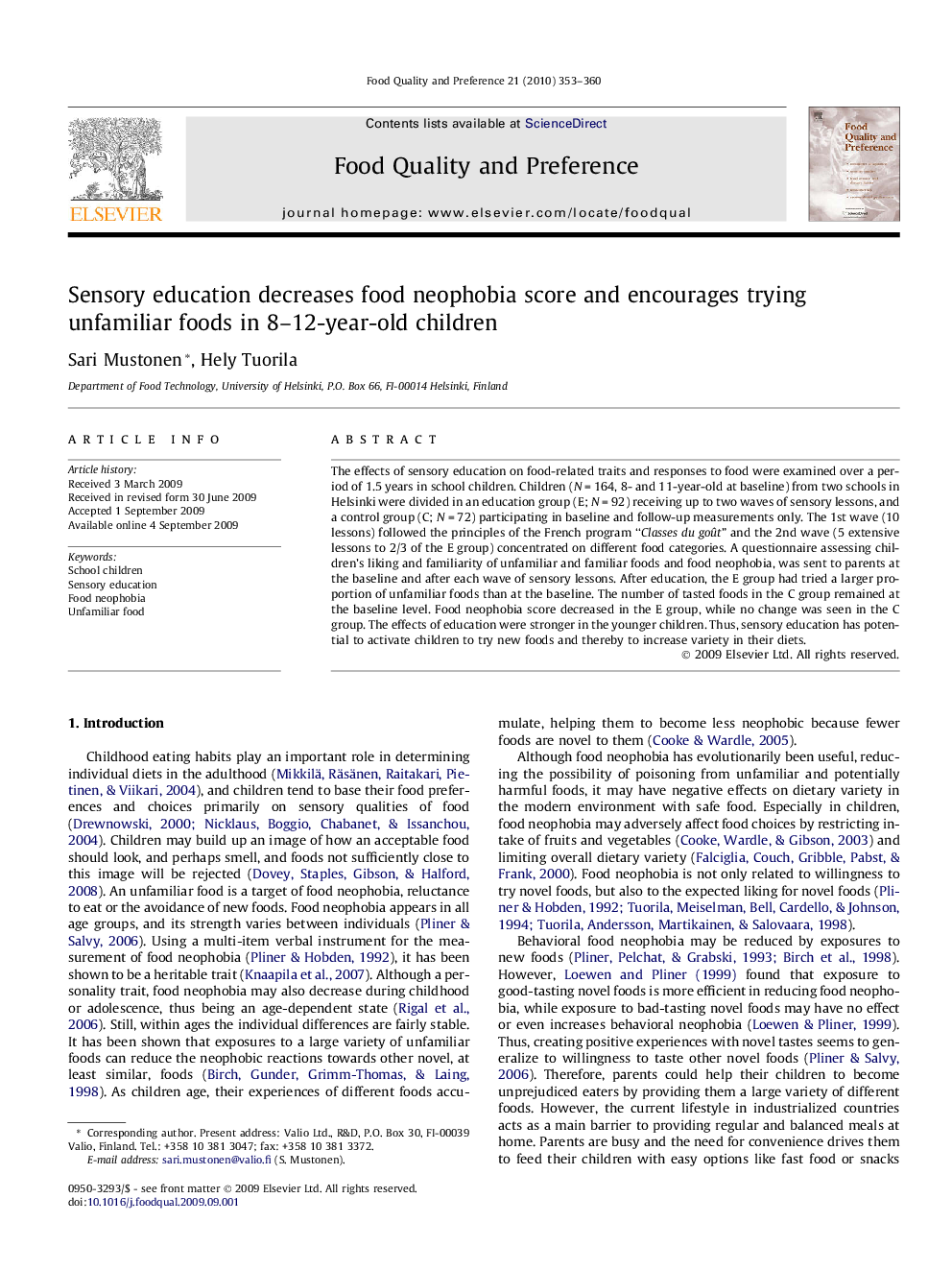| کد مقاله | کد نشریه | سال انتشار | مقاله انگلیسی | نسخه تمام متن |
|---|---|---|---|---|
| 4317757 | 1290614 | 2010 | 8 صفحه PDF | دانلود رایگان |

The effects of sensory education on food-related traits and responses to food were examined over a period of 1.5 years in school children. Children (N = 164, 8- and 11-year-old at baseline) from two schools in Helsinki were divided in an education group (E; N = 92) receiving up to two waves of sensory lessons, and a control group (C; N = 72) participating in baseline and follow-up measurements only. The 1st wave (10 lessons) followed the principles of the French program “Classes du goût” and the 2nd wave (5 extensive lessons to 2/3 of the E group) concentrated on different food categories. A questionnaire assessing children’s liking and familiarity of unfamiliar and familiar foods and food neophobia, was sent to parents at the baseline and after each wave of sensory lessons. After education, the E group had tried a larger proportion of unfamiliar foods than at the baseline. The number of tasted foods in the C group remained at the baseline level. Food neophobia score decreased in the E group, while no change was seen in the C group. The effects of education were stronger in the younger children. Thus, sensory education has potential to activate children to try new foods and thereby to increase variety in their diets.
Journal: Food Quality and Preference - Volume 21, Issue 4, June 2010, Pages 353–360